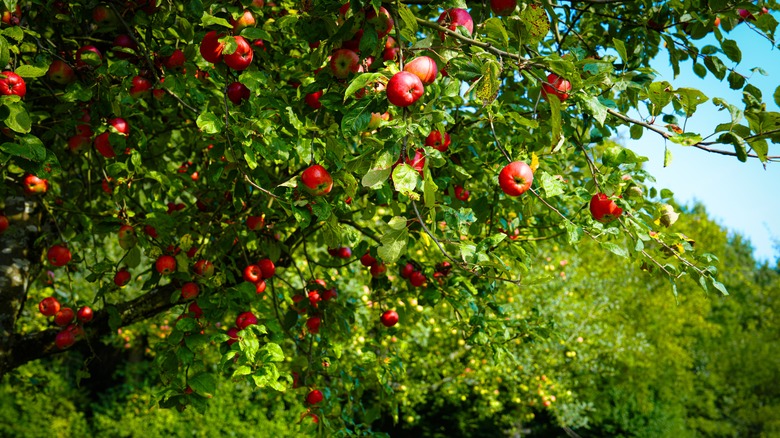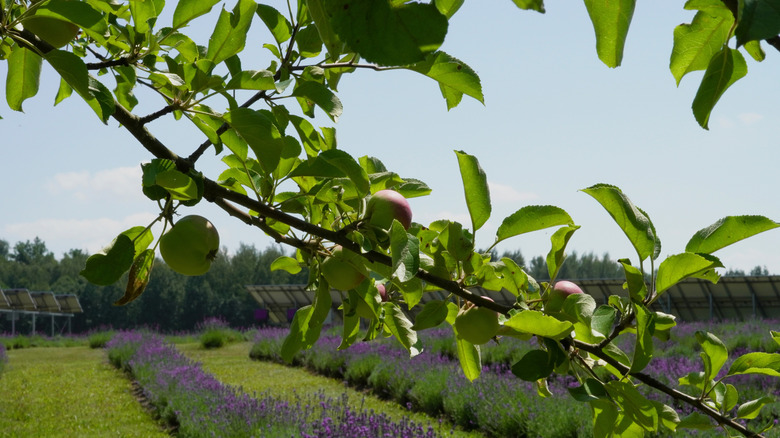Why You Should Be Growing This Beautiful Flower Under Your Fruit Trees
There is one beautiful flower that adds fragrance and elegance to any garden, and it's especially valuable when planted under fruit trees. That's because this flowering herb supports pollination and deters certain pests, offering a low-maintenance way to improve fruit tree health and yield. While lavender (Lavandula angustifolia) doesn't directly nourish your trees, the pollination that it provides by attracting bumblebees and other pollinators ensures that your fruit trees benefit from the blooms simply existing nearby.
Lavender is among the best companion flowers to plant near fruit trees. This Mediterranean perennial shrub has fragrant purple blooms and aromatic gray-green foliage, and it thrives in full sun and dry, well-drained soils. This makes it a great fit for fruit trees that prefer similar conditions, especially those planted in raised beds or those in sandy, rocky, or loamy soils. While this includes apple, peach, plum, and lemon trees, another fruit-bearing tree that will thrive alongside lavender in the garden is the olive tree.
Lavender grows up to 2 feet tall and 3 feet wide and has a shrub-like form that's easy to prune and shape. Once established, lavender is drought-tolerant and doesn't require fertilizing, which helps keep maintenance low. When planted around fruit trees, lavender can help confuse pests like moths and flies by masking the scent of ripening fruit.
How growing lavender benefits your fruit trees
As mentioned, lavender earns its spot beneath fruit trees by attracting key pollinators and discouraging common fruit pests, but it's important to understand how this herb does that. The fragrant, tubular flowers are rich in nectar and especially appealing to bumblebees, who forage more efficiently than honey bees due to their longer tongues. This allows them to collect nectar quickly and increase pollination across your fruiting trees. Lavender's blooms are well-suited for a variety of pollinators, including bees, butterflies, and even hummingbirds. By increasing the number and diversity of visitors to the garden, lavender indirectly supports more consistent fruit set and cross-pollination for nearby plants.
In addition to boosting pollination, lavender can act as a natural deterrent for certain pests. If you have issues with mosquitoes, flies, fleas, or moths getting into the fruit in your garden, you can plant lavender, which releases a fragrance that is unpleasant to these insects. A lavender shrub can also be planted as the perfect companion plant for avocado trees, considering that avocados grow on fruiting trees and will need as much protection as your apples and lemons will if you have a pest problem. Be sure to plant lavender underneath or near trees where it can still meet its cultural conditions, and with a bit of annual pruning to keep it compact and productive, this companion plant will continue to support your orchard through multiple seasons.

